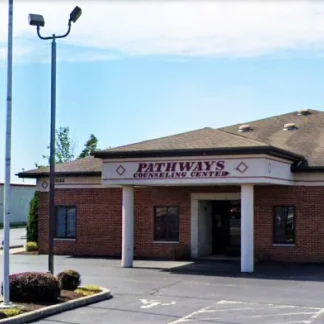Cognitive Behavioral Therapy (CBT) is a therapy modality that focuses on the relationship between one's thoughts, feelings, and behaviors. It is used to establish and allow for healthy responses to thoughts and feelings (instead of unhealthy responses, like using drugs or alcohol). CBT has been proven effective for recovering addicts of all kinds, and is used to strengthen a patient's own self-awareness and ability to self-regulate. CBT allows individuals to monitor their own emotional state, become more adept at communicating with others, and manage stress without needing to engage in substance abuse.
Whether a marriage or other committed relationship, an intimate partnership is one of the most important aspects of a person's life. Drug and alcohol addiction affects both members of a couple in deep and meaningful ways, as does rehab and recovery. Couples therapy and other couples-focused treatment programs are significant parts of exploring triggers of addiction, as well as learning how to build healthy patterns to support ongoing sobriety.
Experiential therapy is a form of therapy in which clients are encouraged to surface and work through subconscious issues by engaging in real-time experiences. Experiential therapy departs from traditional talk therapy by involving the body, and having clients engage in activities, movements, and physical and emotional expression. This can involve role-play or using props (which can include other people). Experiential therapy can help people process trauma, memories, and emotion quickly, deeply, and in a lasting fashion, leading to substantial and impactful healing.
Research clearly demonstrates that recovery is far more successful and sustainable when loved ones like family members participate in rehab and substance abuse treatment. Genetic factors may be at play when it comes to drug and alcohol addiction, as well as mental health issues. Family dynamics often play a critical role in addiction triggers, and if properly educated, family members can be a strong source of support when it comes to rehabilitation.
Groups Counseling consist of services provided to a number of clients with similar mental health or addiction issues. Groups are cognitive-behavioral-based, structured, and time limited. Group sessions focus on specific topics including awareness and symptoms, addiction, making better choices, relationship building, employment, problem-gambling, and personal wellness. The current group curriculum is based upon the Thinking For A Change program.
Individual Counseling services consist of a series of structured sessions where the counselor helps a person work toward their desired goals as identified in a treatment plan specific to the person. Services are available to all youth and families of Putnam County who are experiencing problems with daily living or have been identified by the community (schools, juvenile court, etc.) as a person in need of treatment services.
Life skills trainings involve all the skills a person must have in order to function successfully in the world. These include time management, career guidance, money management, and effective communication. Truly successful addiction recovery is based on the ability to not only live substance-free, but to thrive. Life skills teaches the practical necessities of functioning in society, which sets clients up for success in life, and therefore sobriety.
Trauma-focused cognitive behavioral therapy (TF-CBT) was developed by Judith Cohen, Anthony Mannarino, and Esther Deblinger. TF-CBT is designed for youth who have experienced a significantly traumatic event. Trauma-focused cognitive behavioral therapy is used to help people experiencing clinical post traumatic stress return to a healthy state of functioning after a traumatic event. This therapy is used for the parents or caregivers, children, and adolescents in a way that decreases the negative behavior patterns and emotional responses that occur as a result of sexual abuse, physical abuse, or other trauma.
